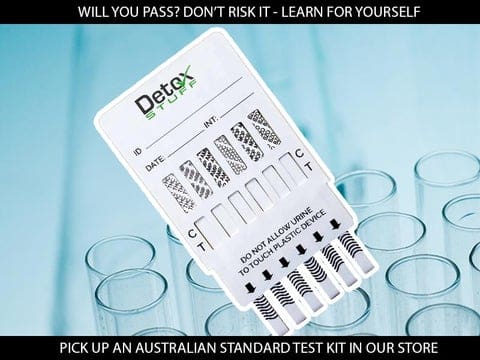No products in the cart.
It is no secret that the Australian workplace has been a bit of a hotbed for the introduction of anti-aging initiatives and a lot of these initiatives have been for the betterment of the working population as a whole. However, these same initiatives often rub up against one another and cause problems for employers in their capacity to police the implementation of these programs. Because the Australian workplace has always been regarded as one of the most laid back countries in the world, the implementation of these workplace drug testing laws was met with quite a lot of resistance from many groups representing the working class. The main thrust of these groups was that they did not feel that the laws were actually doing anything to help them in the fight against drug abuse. After all, why should they participate in a program that would give them a legal loophole to use drugs on the job?
However, there was no denying the fact that the effectiveness of these workplace drug testing laws was something that the employers did not want to overlook. After all, if these drug testing laws were to be undermined, the workforce would eventually start facing repercussions themselves. After all, with no formal system to enforce these laws, how could employers even ensure that their employees were using drugs at work? This is when the government decided to actually step in and initiate some form of an implementation process.

So what has been implemented in the way of these workplace drug testing laws? The first thing that the government did was to basically regulate the distribution of drug testing kits and what companies were allowed to put into them. This way, the companies are forced to sell these drug testing kits to authorized organizations that are legitimate and which have a good reason to distribute them. With this measure, it is now easier for employers to ensure that their workers are not cheating the drug test by bringing in drugs or substances for personal use.
Now, there are specific sets of rules that govern how drug testing can be done within the workplace. First, drug testing cannot be based on the results of a random drug test that are usually conducted during an interview process. These random tests are typically used as a means of determining whether or not an applicant has taken in drugs. Now, with this new measure, it is now illegal to do random drug tests in the workplace. Instead, the laws will allow companies to request documentation from an applicant, such as a prescription for painkillers, as a way of ensuring that the applicant is using the medication that he or she needs on a daily basis.
Next, an employee will not necessarily have to face charges for using drugs in the workplace. What happens is that an employee may be charged only if he or she brings in an actual substance while working. This is so the workplace drug testing law will discourage employees from bringing in drugs into the office or making others believe that they are doing so. What happens is that this can also deter an employee from being dishonest with a drug test. It would be easier for an employer to find out if an applicant is telling the truth about a substance abuse problem if no illicit substances are found in his or her possession when an investigation is conducted.
The penalties that will be faced by an employee who is caught with a substance in the workplace will also vary. First, most countries have laws against having drug use be an excuse for getting fired from a job. This means that a person who is caught taking drugs in the workplace could face a criminal trial, although it could be dismissed if evidence shows that the employee was not using the substance in question as part of a drug use disorder. This can be a very serious charge that carries some very severe penalties. However, even if a person is found guilty of this offense, it is still possible to fight the charges and defend their position in court. This is why it is important to remember that drug testing does not always mean the immediate firing of an employee.
Some employers choose not to go through with these workplace drug testing laws. This is because they simply do not wish to deal with any potential legal issues that could arise from employees who test positive for illicit substances. Many employers actually have policies against drug use and would prefer that their employees not use illegal substances on the job. This is their prerogative, however, employers need to follow the law and ensure that their employees are not breaking the rules in any way.
Some drug testing laws also have exceptions that can help protect specific groups of people. For example, there are certain drug testing policies that can help protect pregnant and teenage employees from substance abuse. An example of this is that an employer may drug test a potential employee that has been drinking alcohol on the job. A potential client who is suffering from drug addiction may also be protected under certain circumstances. It is critical to understand all of the implications of any drug testing policy that you have chosen to implement. If you are going to hire someone into your company, it is vital that you check their work history and their criminal record before you let them into your business premises.
Shameless plug – We sell a variety of synthetic urines in our store as well as an Australian Standard test kit. So check that out if you are ever in doubt about your drug levels.
Brisbane: Corner of Calam and Compton Rd, Sunnybank Hills QLD 4109
Melbourne: Ground Floor, 470 St Kilda Rd Melbourne Vic 3004
Sydney: 1 Barratt Street, Hurstville, NSW. 2220